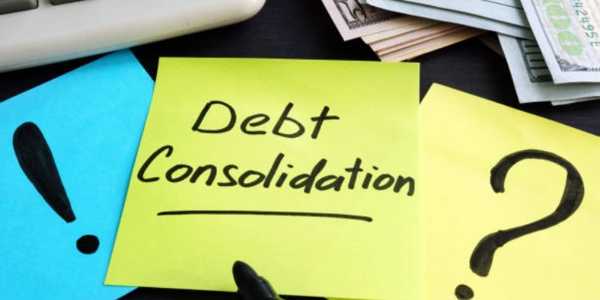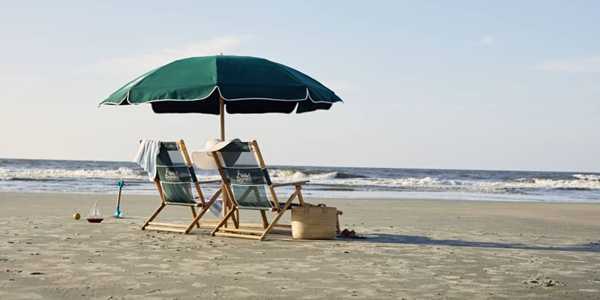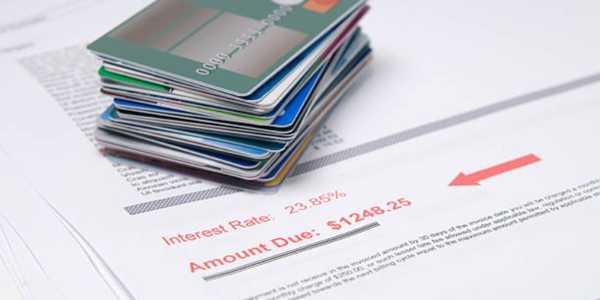Career & Education
The Student's Guide To Managing Credit Card Debt
The moment a student is handed a credit card, something changes. It feels like freedom. Like grown-up power. Like a doorway to endless options. But for many students, that small piece of plastic becomes a weight too heavy to carry, leading to months or years of financial pain that could have been avoided with just a little knowledge and discipline. Credit cards are not evil. But how are they often used? That's a different story.
The moment a student is handed a credit card, something changes. It feels like freedom. Like grown-up power. Like a doorway to endless options. But for many students, that small piece of plastic becomes a weight too heavy to carry, leading to months or years of financial pain that could have been avoided with just a little knowledge and discipline. Credit cards are not evil. But how are they often used? That's a different story.
What Credit Cards Are
A credit card is not free money. It is not a gift. It is a loan. Every swipe, tap, or number entered online is borrowed money that must be paid back. And not just the exact amount spent — but often a lot more, thanks to interest and fees.

For students, this misunderstanding is common. Some think they can “worry about it later.” But “later” comes fast. And “later” is often brutal.
What many don’t know is this: credit card companies want you to stay in debt. It’s how they make their money. The longer you owe them, the more you pay them.
The Dangers of Paying Only the Minimum
Many students review their credit card statement, see the "minimum due," and assume it's sufficient to pay that amount. It is not.
Let’s break it down.
If a student owes $1,000 and only pays the $25 minimum, it may take more than five years to clear the debt, and they could end up paying hundreds of dollars in extra interest. That's money that could have gone to textbooks, food, or savings.
That “minimum due” is not there to help you — it’s there to trap you.
Stop Using the Card Like It’s Your Salary
Some students treat their credit cards like a second income. Grocery store? Swipe. Movie night? Swipe. New shoes? Swipe. And when it runs out, they beg for a limit increase, not realizing that they're walking deeper into a hole.
Here’s a cold fact: if the money is not in the bank, don’t spend it on credit. Credit should only be used for emergencies or well-planned purchases that you’re 100% sure you can repay quickly.
Debt is not cute. It's not a flex. It's not part of the "college experience." It is Stress. It is late-night panic. It is watching your future paycheck disappear before it even lands in your account.

Building Better Habits Now Saves Pain Later
Some students graduate with honours but also with five-figure credit card debt. And then, some students learn to control their spending early and walk into adulthood free and light.
The difference is not income. It’s discipline.
Here are basic habits that help:
Track every dollar. Know what you’re spending and why.
Set limits. Never spend more than 30% of your credit limit.
Pay your full balance every month, not just the minimum.
Avoid cash advances. The interest starts piling up immediately.
Ignore credit card rewards if you can’t pay off your balance. Those rewards are not worth the debt.
It’s not about being rich. It’s about being wise.
Watch Out for Peer Pressure and Lifestyle Comparison
College campuses are full of temptation. Everyone wants to go out, travel, buy the latest gear, or attend every event. And many will use their credit card to make it happen.
But following others is how many students end up trapped in the same financial mess. Just because someone appears to have it all together doesn't mean they're not struggling with secret debt.
Don’t let someone’s temporary lifestyle push you into permanent debt.
Ask yourself this before every non-essential purchase: “If I had to pay cash for this, would I still buy it?”
If the answer is no, you don't need it.
Emergency Means Emergency
Some students say, “I need my card for emergencies.” But what do they define as emergencies? A last-minute road trip? A new phone? A party outfit?
No.
Emergency means medical bills, urgent travel, and a broken laptop needed for school — real, pressing needs.
If the emergency is avoidable, it’s not an emergency.
Stop lying to yourself and dressing up your wants as needs. That’s how a $300 balance turns into $1,500 in two months — and you don’t even remember what you bought.

If You’re Already in Debt, Face It Head-On
Avoiding your statement doesn’t make the debt go away. Ignoring your emails won’t stop the interest from growing. Hoping your parents bail you out again is not a strategy. It’s a habit. And a bad one.
Here’s what to do:
List all your credit card debts. Write down the balances, interest rates, and minimum payments.
Prioritize the one with the highest interest or the smallest balance if you want quick wins (known as the snowball method).
Cut your spending hard until you get control.
Pick up a side hustle — tutoring, delivery, freelancing — and direct all extra money to the debt.
Call your credit card company. Sometimes, they'll lower your interest rate if you ask.
However, do not open new cards to pay off old ones. That’s like using one fire to put out another.
Build Credit the Right Way
Credit is not bad. You need good credit to rent an apartment, obtain a car loan, or sometimes even secure a job. But there's a difference between building credit and burying yourself in debt.
Use your card for small, regular purchases — like gas or a Netflix subscription — and pay it off immediately. That’s how you build credit without sinking.
Having a card doesn't mean you have to use it all the time. Sometimes, it's better to use it once a month and let it rest.
What Really Matters
The goal of being a student is not to show off. It's about learning, growing, and preparing for the life ahead. And part of that preparation is learning how to handle money.
Debt is not a rite of passage. It is a chain.
Students who learn to manage their credit card use early avoid Stress, sleepless nights, broken friendships over money, and starting their adult life already in a pit.
No one is saying don't use credit. The point is to use it with your eyes open. With your head straight. And with the future in mind.
Those who treat credit cards with respect end up being the ones in control — not the ones being controlled.
Money decisions made today can either build a bridge to freedom or a cage of debt.
Choose wisely.
Trending








